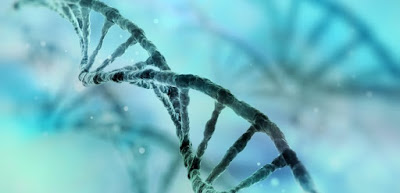Granulosa Cell Tumor Symptoms, Causes, Prognosis, Treatment
Granulosa Theca cell tumor is another name of granulosa cell tumor. It is a condition in which tumor occurs in granulosa cells of ovary and testicles. It involves stromal surface of sex cord present in both males and females. Granulosa cell tumor occurs in 2 percent of cases with ovarian tumor. It is actively divided into two main types on the basis of histological findings i.e. adult and juvenile granulosa cell tumor. Both of these subtypes release estrogen and this release helps in diagnosis of granulosa cell tumor. Adult GCT occurs mainly in women having menopause and juvenile GCT occurs in adults usually less than 30 years of age.

Excess mass in pelvic region is observed in patients with granulosa cell tumor. The mass is palpable in texture and is present in about 85 to 97 percent of patients. Rectovaginal and bimanual examination is preferred for mass evaluation. Pain in abdominal region is another symptom. If pain persist for longer time period, then further examinations are performed to check presence of any infection. Women feel excessive vaginal secretions and breast tenderness. Abnormal uterine bleeding in postmenopausal women. Increased production of estrogen also shows presence of granulosa cell tumor because estrogen stimulates breast and vaginal tissues.
There is not any definite etiology reported yet for granulosa cell tumor. But it may occur due to any kind of infection in ovary. Pathogens involved may be neisseria gonorrhoeae and chlamydia trachomatis. If pelvic inflammatory disease is suspected, then gram stain is used to confirm gram negative diplococci presence. It may occur due to chromosomal anomalies. Autocrine and endocrine abnormalities are also responsible for granulosa cell tumor. There may be various factors involved in etiology of granulosa cell tumor. Other than all these causes, cervicitis is also reported for GCT.
The prognosis of granulosa cell tumor is very good. It is so because of its early diagnosis. It can be easily diagnosed at early stage because of excessive secretion of estrogen hormone in both male and female. Over excretion of estrogen stimulates tissues of vagina and breast in women. Surgical removal is considered a safe treatment option with good success rate. But now a days a more advanced therapy is introduced named chemotherapy. Via chemotherapy the mortality rate as well as morbidity rate is decreased. Medications are also of great help in controlling excessive levels of estrogen hormone.
Treatment of granulosa cell tumor involves three main treatment options i.e. surgical removal of tumor, chemotherapy and medication therapy. Surgery is considered safe and in postmenopausal women the ovaries as well as womb is also removed along with tumor. Radiotherapy is another option but the treatment is selected on the basis of severity and stage of tumor. Surgery is recommended at initial stage and radiology is recommended at the stage where surgery is not possible. Medications are used side by side along with chemotherapy and radiotherapy. As medicines help in controlling and managing secretions of estrogen hormone.

Granulosa Cell Tumor Symptoms
Excess mass in pelvic region is observed in patients with granulosa cell tumor. The mass is palpable in texture and is present in about 85 to 97 percent of patients. Rectovaginal and bimanual examination is preferred for mass evaluation. Pain in abdominal region is another symptom. If pain persist for longer time period, then further examinations are performed to check presence of any infection. Women feel excessive vaginal secretions and breast tenderness. Abnormal uterine bleeding in postmenopausal women. Increased production of estrogen also shows presence of granulosa cell tumor because estrogen stimulates breast and vaginal tissues.
Granulosa Cell Tumor Causes
There is not any definite etiology reported yet for granulosa cell tumor. But it may occur due to any kind of infection in ovary. Pathogens involved may be neisseria gonorrhoeae and chlamydia trachomatis. If pelvic inflammatory disease is suspected, then gram stain is used to confirm gram negative diplococci presence. It may occur due to chromosomal anomalies. Autocrine and endocrine abnormalities are also responsible for granulosa cell tumor. There may be various factors involved in etiology of granulosa cell tumor. Other than all these causes, cervicitis is also reported for GCT.
Granulosa Cell Tumor Prognosis
The prognosis of granulosa cell tumor is very good. It is so because of its early diagnosis. It can be easily diagnosed at early stage because of excessive secretion of estrogen hormone in both male and female. Over excretion of estrogen stimulates tissues of vagina and breast in women. Surgical removal is considered a safe treatment option with good success rate. But now a days a more advanced therapy is introduced named chemotherapy. Via chemotherapy the mortality rate as well as morbidity rate is decreased. Medications are also of great help in controlling excessive levels of estrogen hormone.
Granulosa Cell Tumor Treatment
Treatment of granulosa cell tumor involves three main treatment options i.e. surgical removal of tumor, chemotherapy and medication therapy. Surgery is considered safe and in postmenopausal women the ovaries as well as womb is also removed along with tumor. Radiotherapy is another option but the treatment is selected on the basis of severity and stage of tumor. Surgery is recommended at initial stage and radiology is recommended at the stage where surgery is not possible. Medications are used side by side along with chemotherapy and radiotherapy. As medicines help in controlling and managing secretions of estrogen hormone.
Granulosa Cell Tumor Symptoms, Causes, Prognosis, Treatment
 Reviewed by Simon Albert
on
August 13, 2019
Rating:
Reviewed by Simon Albert
on
August 13, 2019
Rating:
 Reviewed by Simon Albert
on
August 13, 2019
Rating:
Reviewed by Simon Albert
on
August 13, 2019
Rating:











